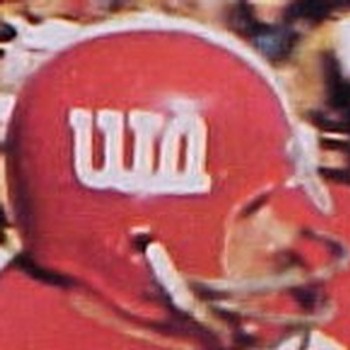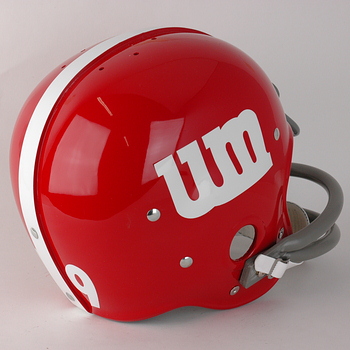
Maryland
Terripins 1970
(Authentic Reproduction)
By the late-1960’s, it was
easy to forget that the University of Maryland football program had been a
dominant player on the national landscape until 1956. Legendary coach Jim Tatum
who had turned the Oklahoma program around and then did the same at Maryland,
posted a winning percentage in excess of eighty percent during his nine seasons
in College Park and between 1951 and ’55 posted three undefeated regular seasons
in those five years. During the ensuing sixteen seasons, other than a few
winning years generated by Tom Nugent, five coaches managed to make a .500 year
look almost unattainable. After former Maryland great and first Terps Consensus
All American Bob Ward was unsuccessful with a winless 1967 and two-win ’68, and
had to quell a public revolt by his players, the school surprisingly hired high
school coach Ray Lester. A great athlete at West Virginia, Lester had put time
in on the Maryland staff as an assistant in the mid-1950’s, but it was his high
school experience and success that made the administration believe he could
better relate to the young players and “New Age” mentality they brought to the
gridiron with them. Lester’s ’69 mark of 3-7 was deemed acceptable as he
attempted to change the emotional tenure of the team and in 1970, vast
improvement was expected.
Maryland had
traditionally donned red and white jerseys and a white helmet with a gold
center stripe and black flanking stripes, reflecting the official colors of
the state. Ward, a disciplined, conservative coach, had dressed his teams in
red jerseys bereft of trim and all-red helmets. Lester’s 1970 helmet,
introduced upon his arrival for the 1969 season, maintained the red shell
with the addition of a one-inch white center stripe, and introduced a white,
lower case “um” in a thick-style font that stood out to fans in the stands.
It was simple, direct, and attractive and Lester hoped that it would be a
small addition that would break with the recent past that had left many
supporters upset and angry, and many players still with the team from the
turbulent 1968 Ward debacle, unhappy with the relationship they had with the
coaches. Despite transfer running back Art Seymore rushing for 945 yards, a
lack of offensive punch doomed the Terrapins, with the team unable to
generate more than eleven points in the majority of their games. The defense
was respectable at times, led by All ACC defensive end Guy Roberts of North
Babylon, Long Island who later played linebacker for the Oilers, Falcons,
and Dolphins, and track star Tony Green who highlighted his 1970 football
off-season by defeating Olympian John Carlos in the 60 yard sprint, and
remained a consistent performer in the secondary. The 2-9 record however did
little to lift spirits or hopes of future success for the faithful. Lester
lasted but one more season, another 2-9 disappointment, before Bear Bryant
disciple Jerry Claiborne was brought in and ushered in a new era of success.



